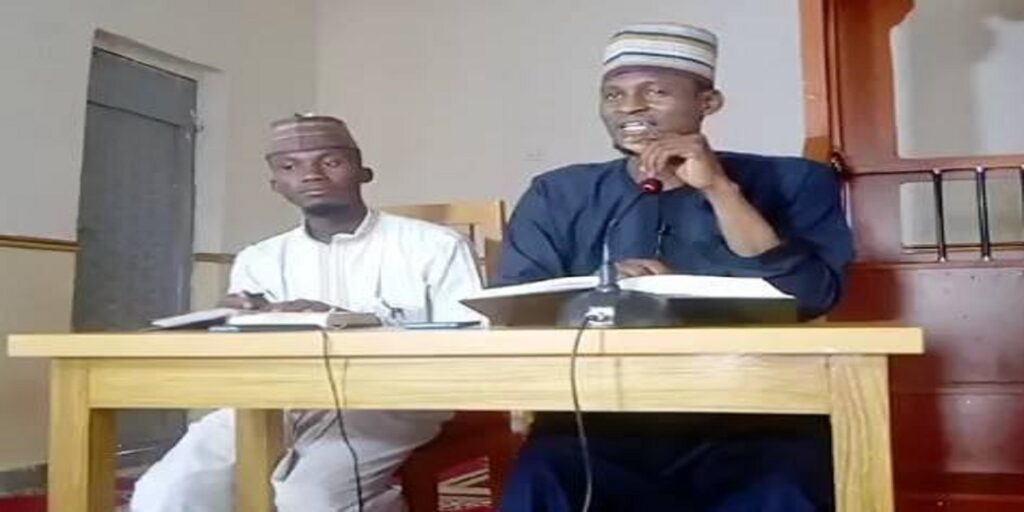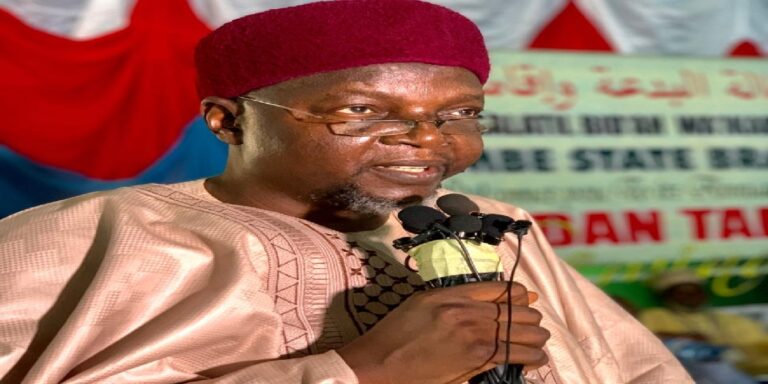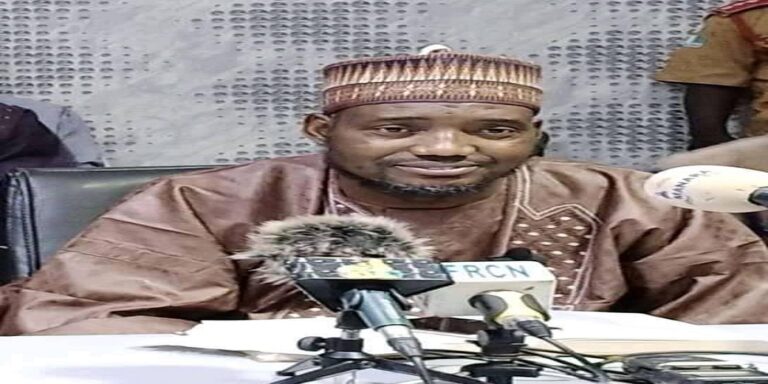Early Life, Background, and Education
Sheikh ABDULMUDALLIB Auwal GUSAU was born on August 1, 1985, in the serene town of Gusau, located in Zamfara State, Nigeria. His early years were shaped by a rich tapestry of Islamic values and teachings, nurtured by his devout parents. From a tender age, he was introduced to the Qur’an and Hadith, setting the foundation for a life dedicated to Islamic scholarship. His initial education commenced at home under the vigilant guidance of his parents, before progressing to a local Islamiyya school in Tudun Wada. This foundational education was crucial in instilling the principles of Al kitaab was Sunnah and the teachings of the pious predecessors, which would later define his life’s work.
As a young boy, his family relocated to Biu in Borno State, where he continued his primary education while furthering his studies in Islamiyya. His thirst for knowledge led him to pursue secondary education in Biu, where he excelled in both secular and Islamic studies. Determined to delve deeper into Islamic jurisprudence, he attended an Arabiyya secondary school and later graduated from the Gusau Science Secondary School. His academic journey reached its zenith at the University of Wudil, Kano, where he graduated in 2015, armed with a robust educational background and a profound understanding of the Manhajus Sunnah and the right Aqidah.
Career, Islamic Scholarship, and Rise to Prominence
Sheikh ABDULMUDALLIB‘s career is a testament to his unwavering dedication to Islamic scholarship and the spread of authentic Islamic teachings. His rise to prominence began with his involvement in various Islamic organizations, including the Izala movement, which is known for advocating the purification of Islam in Nigeria. Through his lectures and wa’azi (sermons), he became a prominent voice advocating for strict adherence to the Sunnah and the teachings of the Salafus Salih (righteous predecessors).
His scholarly pursuits are vast and diverse, ranging from the translation and interpretation of key Islamic texts to delivering thought-provoking khutbas (sermons). His work in Tafsir (interpretation of the Qur’an) is particularly notable, as he has provided insightful commentary that has benefitted Muslims seeking to understand the deeper meanings of the Qur’an. His commitment to the principles of Ahlussunnah wal Jama’ah has earned him a respected place among contemporary Islamic scholars in Nigeria and beyond.
Teaching and Da’awah
Teaching and Da’awah have been central to Sheikh ABDULMUDALLIB‘s mission. His approach to spreading Islamic knowledge is both engaging and accessible, making complex theological concepts understandable for Muslims from all walks of life. His lectures frequently emphasize the importance of adhering to the Sunnah and the teachings of the Qur’an, urging the Muslim community to follow the path of the pious predecessors. Through platforms like facebook, TikTok and now on SunnahSak, he has reached a wider audience, using modern technology to disseminate Islamic teachings.
In addition to his lectures, Sheikh ABDULMUDALLIB has been actively involved in organizing and participating in Q&As, where he addresses pressing religious questions and provides guidance grounded in Islamic principles. His Da’awah efforts extend to various media outlets, where he regularly contributes to discussions on Islam, thereby reinforcing the importance of maintaining the right Aqidah and promoting unity among Muslims in Nigeria and the broader Arewa community.
Achievements, Contributions, Impact & Legacy
Sheikh ABDULMUDALLIB has made significant contributions to the Islamic community, impacting countless lives through his scholarship and academic outreach efforts. His work in translating and interpreting Islamic texts has made essential religious knowledge more accessible to Hausa-speaking Muslims, thereby fortifying the faith of many. His impact is also evident in the numerous students and followers who have embraced his teachings and continue to propagate the principles of Ahlussunnah wal Jama’ah.
His legacy is marked by his unwavering commitment to promoting the true essence of Islam, advocating for peace, and fostering understanding among Muslims. Through his teachings, he has inspired a generation to embrace their faith with sincerity and devotion, ensuring that the core tenets of Islam remain vibrant and relevant in contemporary society.
Personal Life & Relationships
Beyond his public persona, Sheikh ABDULMUDALLIB is known for his humility and approachability, traits that have endeared him to many. His personal life is a reflection of the values he preaches, characterized by simplicity and a steadfast commitment to his faith. He maintains close ties with his family and community, often engaging in works and initiatives that benefit the less fortunate.
Sheikh ABDULMUDALLIB‘s relationships extend beyond familial bonds, as he is highly regarded among peers and students alike. His ability to connect with people on a personal level has made him a beloved figure, not just as a scholar but as a mentor and guide to those seeking knowledge and spiritual growth.
Conclusion & Final Thought
Sheikh ABDULMUDALLIB AUWAL GUSAU stands as a beacon of Islamic scholarship and piety, whose life and work continue to inspire and educate. His dedication to the principles of the Qur’an and Sunnah, along with his commitment to Da’awah, has left an indelible mark on the Muslim community. As a scholar who bridges the past with the present, he ensures that the teachings of the Salaf remain a guiding light for future generations.
In conclusion, Sheikh ABDULMUDALLIB‘s biography is a testament to the transformative power of faith and knowledge. His enduring legacy will undoubtedly continue to resonate within the hearts of Muslims, encouraging them to uphold the values of Islam and strive for excellence in all facets of life.
Disclaimer: This is a summary of the Sheikh’s biography which offers a brief overview. For a comprehensive and accurate understanding, please visit reputable sources for detailed information.
Sources:
1. www.google.com
2. https://www.bbc.com/hausa/articles/cz9y44yd9qgo



